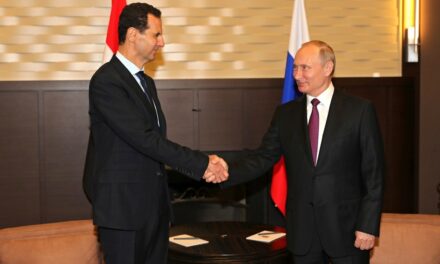We support our Publishers and Content Creators. You can view this story on their website by CLICKING HERE.
Yoon Seok Yeol, the conservative president of South Korea, was impeached today by the South Korean legislature, the National Assembly, because of his botched martial law declaration of December 3. The Assembly has 300 members; 200 votes are required to impeach. A previous effort to impeach him failed last week. The liberal opposition needed a few conservative parliamentarians to vote to remove Yoon. Last week, they cleaved to him; this week, they defected.
Yoon is now suspended from office. His executive powers have been stripped. The South Korean prime minister is now the acting president. The legislature cannot permanently remove a president. The nation’s high court must ratify impeachment, the Constitutional Court. That court has six months to investigate the case and render judgment. It can re-install Yoon or remove him. Removal would force new elections, which the left will almost certainly win. Yoon would also likely go to prison.
Yoon Had a Chance to Explain Himself and Resign
At the heart of this crisis is a mystery. Why would Yoon resort to such extreme measures when he must have known they would generate a massive backlash?
South Korea has been an established democracy for forty years. Yoon must have known that suspending the constitution would surely provoke huge resistance, even among his conservative allies. South Korea also has a history of military dictatorship, so Yoon’s decision to send troops to the National Assembly would be yet more provocative. Yoon must have known that he would need an excellent rationale for why such resonant, frightening measures were necessary.
Yet, no such explanation has been forthcoming in the two weeks since the December 3 declaration. Yoon likely survived the first impeachment vote because his parliamentary allies were hoping he could explain himself or resign. He did not, so today, they assented to his removal. Since December 3, Yoon has given just one short public speech, followed by releasing a printed statement. Other than that, he has scarcely been seen. Neither text laid out convincing motives or justifications for his extreme step. The Constitution foresees martial law in circumstances like a North Korean invasion or a massive weather emergency. Yoon’s reasoning, instead, was that the opposition had used parliamentary investigatory powers to hamstring his government.
Legitimate Grievances; Unjustified Response
Ironically, Yoon’s grievances with the opposition are legitimate. It has relentlessly investigated his government, arguably to the point of abuse. It has also doggedly investigated Yoon’s wife, adding a disgraceful personalism to the opposition’s interaction with the president. The opposition has also used all this to block investigations into its own misdeeds. All this has made it excessively hard for Yoon to govern.
But these grievances are wildly disproportionate to invoking martial law. Divided government and parliamentary gridlock are common in democracies. To suspend constitutionalism in such circumstances is grossly excessive. Even Yoon’s conservative allies immediately realized he seriously overstepped. None supported the martial law declaration, and many had hinted in the media that Yoon had to either resign or they would vote to remove him.
Lingering over all this is suspicion that the real reasons for the martial law declaration are still unknown. Yoon must have known the legislative gridlock would not pass muster as a reason to suspend the constitution. Hence, the concern, particularly on the left, was that this was a soft coup or autogolpe. But if it were, it was remarkably incompetent. Yoon made no serious effort to seize institutions of power in Korea, such as the media or infrastructure. The mystery remains.
What Now for South Korea?
In 2016-17, South Korea impeached another conservative president, Park Geun Hye. Park was removed by the Constitutional Court for offenses far less serious than Yoon’s sorta-autogolpe this month. She then went to prison, and the left won the consequent presidential election.
This is a reasonable template for South Korea in the next year. It would be remarkable if the Constitutional Court did not find against Yoon. He violated core liberal and constitutional values for reasons he still cannot explain sufficiently. If Park deserved jail, Yoon certainly does. The following presidential election will likely swing harder to the left than the post-Park impeachment election. Yoon will finish his career in prison and disgrace.
About the Author: Dr. Robert E. Kelly
Dr. Robert E. Kelly (@Robert_E_Kelly; RoberEdwinKelly.com) is a professor in the Department of Political Science at Pusan National University and a 19FortyFive Contributing Editor.

 Conservative
Conservative  Search
Search Trending
Trending Current News
Current News 





